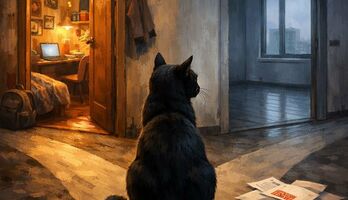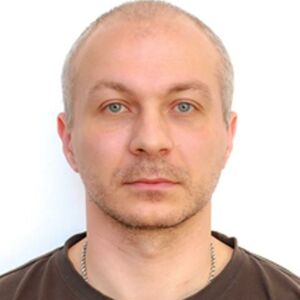Беликова Е.К., Саратовская Л.Б. - The United Kingdom and United States of America in Past and Present (1268141), страница 3
Текст из файла (страница 3)
For about 300 years there was a kind of linguistic classdivision, when the lower classes spoke English and the upper classes lords and barons - spoke French. The English are the descendants of allthe invaders, and learners of English can find many words in the Englishlanguage which originated from French.In the 14th century so-called Middle English became dominant inBritain.
Towards the end of Middle English, a sudden and distinct changein pronunciation (the Great Vowel Shift) started, with vowels beingpronounced shorter. In 1477 William Caxton brought his printing pressfrom Flanders, set it up at Westminster and started producing books in11English. One of the first books he printed was Canterbury Tales byChaucer (1340-1400) - pilgrim’s stories on the road to Canterbury.Chaucer who is called “the father of English poetry” wrote his book inLondon dialect.
Of course, it would be difficult for our contemporaries tounderstand The Canterbury Tales in the original today. Even at the timeof Chaucer it was difficult for people from other parts of England tounderstand his book, because each county had its own dialect.Another Middle English book worth mentioning was ArthurianLegends brought together by Thomas Malory – legends about Arthur,who led Celtic resistance against Saxons.
He became king when he pulledout the sword from the stone, which no one except him could do. Arthurestablished a brilliant court at Camelot, where he gathered the Knights ofthe Round Table.The printing brought standardizations to English spelling andgrammar.
Gradually books became cheaper and more people learned toread. In 1604 the first English dictionary was published. A southernEnglish accent (The dialect of London) became generally accepted andeasily understood. Since the 16th century the British had contacts withmany nations around the world. Many new words and phrases entered theEnglish language from Latin and Greek especially during the period ofthe Renaissance.Hamlet's famous "To be or not to be" lines by William Shakespeare(1564-1616) were written in Early Modern English. His 40 plays andpoems, especially Sonnets had a great influence on English and manyphrases and quotations from his works became part of the language.
Themain difference between Early Modern English and Late ModernEnglish (1800-Present) is vocabulary. Late Modern English has manywords, created by two principal factors. Firstly, the Industrial Revolutionand technology needed new words. Secondly, the British Empire at itsheight covered one quarter of the earth's surface, and the Englishlanguage adopted foreign words from colonies and dominions.English has now inarguably achieved global status. Whenever weturn on the news to find out what's happening in East Asia, or theBalkans, or Africa, or South America, or practically anywhere, localpeople are being interviewed and telling us about it in English.
More than350 million people use English as a mother tongue, and a further 100million use it fluently as a foreign language. English is used in over 90countries as an official or semi-official language. It is the language from12Silicon Valley in North America to Shanghai in China. English is themedium of 80% of the information stored in the world’s computersThree-quarters of the world’s mail, and, of course, e-mail is in English.So are more than half the world’s technical and scientific periodicals.
It isthe de facto working language of 98 percent of international researchphysicists, mathematicians, chemists and biologists. It is the officiallanguage of the European Central Bank, European Monetary Union, andnearly half of all business deals in Europe and other countries. It is theofficial language of the Olympics, cinema and beauty competitions, theofficial voice of the air, of the sea, and even church services.1. Answer the following questions: 1.
What did Old English originatefrom? 2. Who are the British? 3. What invasions were there on the BritishIsles.? 4. What periods did the English language go through?2. Translate into English: Римское правление длилось более 300 лет,начиная с 43 г. нашей эры. После окончательного ухода римлян в 408 г.был достаточно длительный период переселения на остров англов, саксов иютов из северной Европы, в основном, с территории современнойГермании. Новые переселенцы принесли с собой германский праязык.Естественно, что все захватчики и переселявшиеся народы повлияли наразвитие английского языка.
Римляне назвали остров Британией, а самослово «Англия» произошло от названия «земля англов». Позже Викинги изСкандинавии продолжали захватывать земли и заселять их, но в 1006 г.был совершен последний и решающий набег на Англию, когда герцогВильям Нормандский разгромил англичан в битве при Гастингсе. Послепереселения норманнов из Франции французский язык стал языкомдворянства и баронов, поэтому в английском языке так много словфранцузского происхождения.В настоящее время все население Шотландии, Уэльса и Ирландииговорит по-английски, но в каждом из этих регионов существуют своисобственные акценты и диалекты, и их жители легко узнаются по речи.Общепринятым считается южный диалект английского языка, которыйобычно воспринимается как норма.3.
Discussion Point: English as a World and Global LanguageCHAPTER III. A FEW GLIPSES OF BRITISH HISTORYRead the following words:The Commonwealth – Содружество.A bill- законопроектConstituency- избирательный округAct of Parliament –закон;general election- всеобщие выборыBy-election - дополнительные выборы; Secret ballot - тайное голосование13Front-benchers – переднескамеечники; back-benchers - заднескамеечникиRoyal assent-королевская санкцияpeerage пэрствоRight of inheritance -наследное право Lord Chancellor лорд-канцлерBishop- епископarchbishopархиепископsubjects - поданные государстваProtestantism- протестантская церковьThe late- покойный (ая)precedent прецедентBoth the British monarchy and Parliament are ancient institution, datingfrom the middle the 13th century.The power of the English monarchincreased in the 16th century.
The Tudor dynastyestablished a system of government departments,staffed by professionals. Parliament was traditionallysplit into two “Houses” or Chambers. The House ofLords consisted of the feudal aristocracy and theleaders of the Church; the House of Commonsconsisted of representatives from the towns, lessimportant landowners and merchants.After the Pope refused to support his divorce,Henry YIII proclaimed himself head of the protestant “Church ofEngland”, independent on Rome.
All church lands came under his controland gave him a large new source of income.During her long reign his daughter Elizabeth Iestablished by skilful diplomacy a reasonabledegree of internal stability, allowing the growthof a spirit of patriotism. She never got married,but used its possibility as a diplomatic tool. Shebecame known as “the virgin queen”. AfterEngland defeated in 1588 the fleet of SpanishArmada, consisting of 130 ships, it became the most powerful in Europe.Its navy really “ruled the waves”.
In the 17th centuryparliament established its supremacy over themonarchy in Britain. Ideological Protestanism,especially Puritanism, began to grow. The conflictled to the Civil War, which ended with victory forthe parliament. King Charles became the firstmonarch in Europe to be executed after a formal trialfor crimes against his subjects.
The leader of theParliament army, Oliver Cromwell became “LordProtector” of a republic with a military government.When Cromwell died after 11 years in power his14political system had become so unpopular that the son of the executedking was asked to return from France and take the throne. After the reignof James II Parliament asked Prince William from Netherlands and hisStuart wife Mary to become king and queen.
In this way it wasestablished that a monarch could rule only with the support of Parliament,which was drawn in a Bill of Rights limiting the monarch’s powers.In the 18th century Britain expanded her empire to America, Africaand India. The increased trade which resulted from the links with thesenew markets was one factor which led to the Industrial Revolution. Manytechnical innovations in the areas of manufacturing and transport werealso important contributing factors.Another part of the empire was made up of Canada, Australia andNew Zealand, where settlers from Britain formed the majority of thepopulation. In the 19th century Ireland became a part of the empire aswell. During the 19th century Britain became the most powerful countryin the world.
The expansion of the British Empire provided cheap rawmaterials which British factories processed and exported around theworld. From the Crimean War (against Russia, 1854-56) until the BoerWar in South Africa (1899-1902) British troops defended the Empire inmany distant parts of the world.Great Britain took part in both World War I and II, in which Britainwas among the victorious nations, but at a great cost.
The empiredissolved and in the post-war world Britain had to struggle to find a newrole among larger and better equipped nations. The process ofdecolonization began in 1947 with the independence of India, Pakistanand Ceylon and was over in 25 year. However Britain tried to keep herinfluence over the former colonies and initiated the creation of so-calledCommonwealth, including 49 former members of the British Empire.Today the United Kingdom is a constitutional monarchy. As Itmeans that the head of the country is queen Elizabeth II and everything isdone in her majesty’s name. Yet the Queen is not sovereign in anysubstantial sense since she receives her authority from Parliament, and issubject to its direction in almost all matters. In short she “reigns” but doesnot rule.
The British sovereignty in reality resides in tree elements: theCrown, Parliament and prime-minister with his government and cabinet.No constitution has ever been written down and the relationship amongall tree elements has developed in the consolidation of the rule of law,precedent, custom and common sense.15The Crown The reigning monarch is not only the Head of state but alsoa symbol of the unity of the nation. The monarchy is hereditary.
















